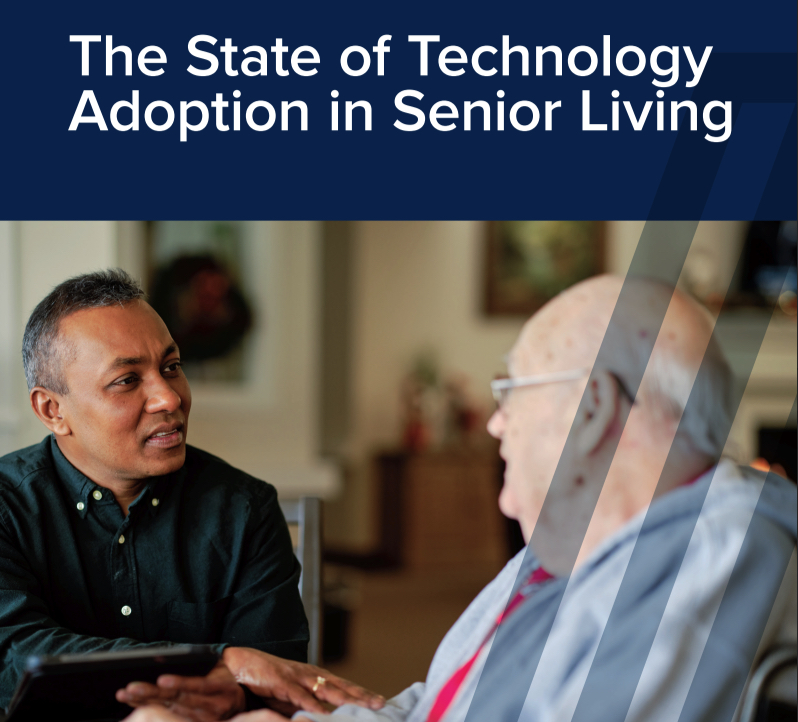
What You Should Know:
– Argentum, a national association supporting senior living communities, and A Place for Mom, a senior advisory service, have released their annual report, “The State of Technology Adoption in Senior Living.” The 2025 report reveals significant strides in the adoption of artificial intelligence (AI) and a growing commitment to collaborative innovation, even as the industry grapples with persistent challenges related to funding and interoperability.
– The comprehensive report, drawing insights from over 1,000 senior executives and technology leaders, provides an in-depth look at current technology trends, top challenges, and breakthrough opportunities within the senior living sector.
AI Optimism Soars, Interoperability Hinders Progress
The survey highlights five major themes shaping technology adoption in senior living:
- Interoperability Remains a Core Challenge: More than three in four (77%) executives identified interoperability as a top-three barrier to technology implementation, deeming it the most impactful issue limiting comprehensive resident health management. Lack of interoperability between software tools and incompatible legacy systems continue to be significant roadblocks.
- Technology Funding is Chronically Limited: Funding is a formidable obstacle, with nearly two in three (63%) survey participants naming it a top-three barrier. Concern over funding significantly increased from 2023 to 2024. Senior living leaders’ technology aspirations often involve foundational goals, like shoring up infrastructure and hiring technical staff.
- Artificial Intelligence (AI) Adoption and Optimism are Growing: A large majority (76%) of surveyed executives believe AI will have a transformative or positive effect on senior living. Many are already experimenting with AI for staffing efficiency, care planning, and augmenting resident interaction. Common AI uses include predictive analytics (70%), AI for staff efficiency (50%), and chatbots for resident interaction (50%).
- Gaps Exist in Data Quality and Standardization: Less than 26% of senior living organizations report full alignment on definitions of resident health and wellness, hindering benchmarking and participation in value-based care. Despite this, nearly two in three (59.26%) organizations prioritize collecting and analyzing resident health and wellness data.
- Collaboration is Valued by Industry Leaders: An overwhelming 84% of survey participants see co-innovation with vendors as essential. There is a strong call for a neutral third party to help evaluate and compare technology solutions, with 84.61% of respondents believing a trusted third party is needed to vet, endorse, and introduce new technologies.
Addressing Six Core Problems to Drive Adoption
Beyond the survey themes, the report identifies six critical problems that, if solved, could significantly boost technology adoption in senior living:
- Silos: Proprietary systems continue to lack interoperability and compatibility, hindering data analytics and delaying participation in value-based care.
- Vendor Challenges: Vendors perceive the senior living industry as a difficult, ill-defined, and high-cost channel, slowing the development of innovative, tailored technologies.
- Delayed Value-Based Care Participation: A lack of incentives to invest in advanced technologies and improve data quality slows the industry’s readiness for value-based care, which requires high-quality data exchange.
- Need for a Trusted Third Party: Without uniform metrics and industry-standard data taxonomies, senior living operators struggle to identify technology solutions that deliver meaningful ROI.
- Meeting Consumer Expectations: Tech-savvy residents, families, and employees expect senior living businesses to leverage advanced technologies, including AI, to solve problems and provide services, creating noticeable gaps when expectations are not met.
- The Quality Data Imperative: High-quality data is crucial for the future of senior living, impacting value-based care, labor and cost management, and quality outcomes.
The full 2025 Argentum Technology Report is available here for access to provide deeper insights into these critical trends and opportunities.
